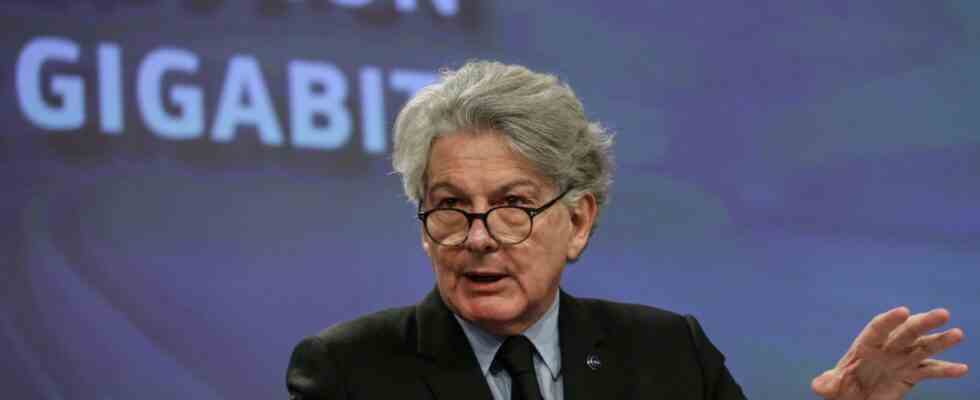The numbers are huge: more than five billion people can now communicate with each other using mobile devices, that is 70 percent of the world’s population. A billion connections are even connected in the latest cellular technology 5G – it all started 35 years ago. The number of customers is constantly growing, but above all the number of data that is transmitted. Compared to the data exchanged ten years ago, there are now 27 times as many – and this is becoming a problem for mobile operators. Because the growth should continue. And that means for them that they have to invest billions in expanding the networks, but at the same time they should rather lower prices because of the competitive pressure.
Support from an unusual source
Complaints about this are nothing new. Every branch of industry strives for the best conditions. But now the mobile phone industry is getting support from an unusual source. None other than EU Internal Market Commissioner Thierry Breton believes that companies in the industry should not shoulder the burden alone, which ultimately benefits all of Europe – well-developed communication networks. In a speech at the industry’s largest meeting, the Mobile World Congress in Barcelona (MWC), he called for companies that earn good money using the networks to contribute to the expansion costs. He has providers like Netflix, Google or Meta (Facebook, Instagram) in mind. Just five companies would cause 55 percent of Internet traffic with their data, says Christel Heydemann, head of the French telecommunications provider Orange.
So it’s about the old question: who should pay for it? Breton would like to collect five billion euros a year from these companies in order to at least give some support to the mobile phone providers. The EU Commissioner, who used to be the head of the French Orange group in the industry, justifies his move with the argument that it is not about the conflict between mobile phone providers and large users. It’s about the fact that the expansion of the networks in the EU is not progressing quickly enough if the entire burden lies exclusively with the network operators. “We need the networks of the future,” says Breton in his speech, “it’s not about whether the interests of one person or the other are in the foreground.”
The mobile phone providers see themselves changing anyway. We’re no longer talking about a telephone network here, says José Maria Álvarez-Pallete, head of Spanish telecom giant Telefónica. “It’s a decentralized supercomputer.” It needs it to meet all the requirements that the new 5G network and its successors raise. Software instead of specialized hardware, artificial intelligence, cloud services and data centers close to transmission towers or locations – known in technical jargon as edge computing. So there’s a lot to do, the companies have to rebuild themselves in live operation, “reinvent themselves”, as Telefónica boss Álvarez-Pallete said twice in his speech at the MWC.
It is uncertain whether the billions will flow
The billions from the big data slingshots would of course be very welcome to them. But whether they will eventually flow is uncertain. It is unusual that the proposal for the fee comes from the EU of all people. After all, it is considered the hotbed of so-called net neutrality. In other words: the network is neutral, everyone uses it as they wish, everyone has the same rights. Thierry Breton now wants to change that. There is a so-called consultation in which the parties involved are questioned. Breton claims that this is not a unilateral position for the network providers. According to his plans, the draft for a legal regulation for this, the Gigabit Infrastructure Initiative, could already be available in autumn.
Critics like the Dutch Economics Minister Micky Adriaansens see things very differently. She fears the matter could harm consumers. Because companies like Netflix, Microsoft and others would pass on the resulting costs to consumers. The Dutch government has also commissioned a study on the telecommunications market, which comes to exactly this conclusion. In addition, the network providers are not doing so badly. According to the study, despite increasing data volumes in the networks, they did not have any higher costs. The modernization of the networks would even have reduced the costs, partly because fewer staff are required. In any case, Adriaansens sees no reason to change anything quickly now. Especially since it is not clear whether and how such an internet tax can be enforced at all.

